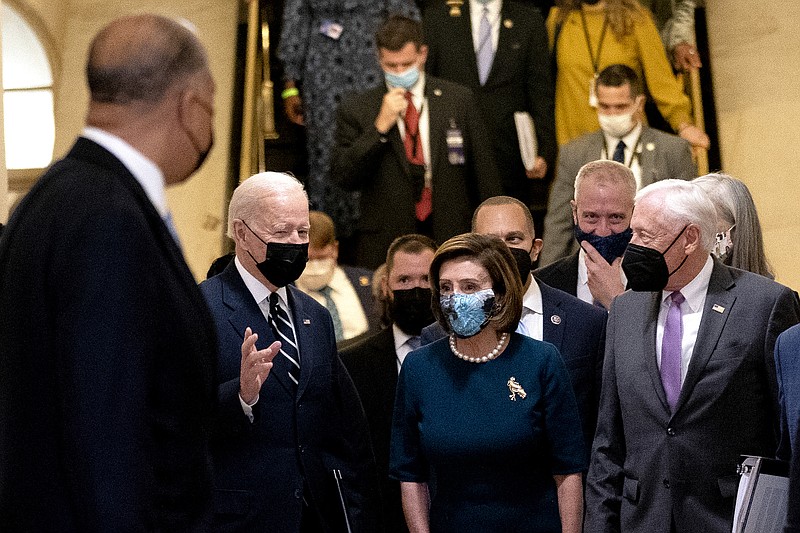Whenever we had major social legislation pass and become law, we had both political parties involved in the process. The measures passed with a substantial number of Democrat and Republican support, regardless of party ideology or who occupied the Oval Office. This has served our country well.
Bipartisanship, in essence, died with the Affordable Care Act when Democrats decided to go it alone. The jury may still be out on the ACA even 11 years out, but a significant piece of the Build Back Better plan includes provisions to prop it up.
President Biden's Build Back Better (BBB) social welfare spending plan is far more robust, according to Biden, and unprecedented, according to Speaker Nancy Pelosi. Yet, obviously not learning anything from the passage of the Affordable Care Act, Democrats are insisting on going it alone again, while holding the bipartisan infrastructure bill hostage.
The tax-and-spend approach will not bring Republicans into the tent and is causing concern among moderate Democrats who realize that socialism does not work, despite the insistence of Sen. Bernie Sanders. We are not all entitled to free stuff. It was a failure even when tried by the pilgrims and early settlers in the 17th century.
Here's a sure-fire way a major part of the BBB bill could be adopted with a significant number of Republican votes. This plan would help bring America together and help end the gridlock in Congress.
The merits of each new social program offered in BBB should be evaluated, tested and debated by Congress. The best test is to pay for the program by eliminating or reducing the federal spending on one or some of the 80-plus social welfare programs already on the books at an annual cost of nearly $1 trillion. This could not only give the Biden administration a legitimate means of showing how it would be paid for, but it would result in no new taxes being imposed on Americans. Republicans could embrace this. The left gets new social spending programs, and the right gets fiscal responsibility. The country ultimately wins.
It would be a true test, a true debate. Sell your new program accompanied by an offset to the budget.
Taxing the rich as the go-to solution is incredibly old. I would guess every populist Democrat has promoted this theme.
Today, 61% of all the tax revenue comes from the top 5% of wage earners. The top 1% supply 40% of all our tax revenue. I assume they are the new targets of the BBB. Most of these folks did not get to be among the top 1% by being stupid or by failing to protect their best interests. What will they do? Leaving America is a bit extreme. It's not like leaving a state. Hypothetically speaking, if just 5% of these folks did leave the U.S., the loss of tax revenue would cause a fiscal crisis, adding so much to our national debt so quickly that it would resemble a hemorrhage.
The other target in the tax-and-spend BBB is corporations. This could add fuel to the fire as corporations, taxed under this plan, to compensate for the higher tax burden, would likely increase prices on their products and services, driving up inflation. Companies are motivated by profit. The consumer will lose with BBB.
I implore Congress to review history. Check the Social Security Act, Medicare, Medicaid, Civil Rights Acts, Voting Rights Act, etc. They all passed with strong bipartisan support, and they helped make America better without the use of tax-and-spend policies. If we're going to build back better, let's start there.
Gary Franks served three terms as U.S. representative for Connecticut's 5th District. He was the first Black Republican elected to the House in nearly 60 years and New England's first Black member of the House.
Tribune Content Agency
